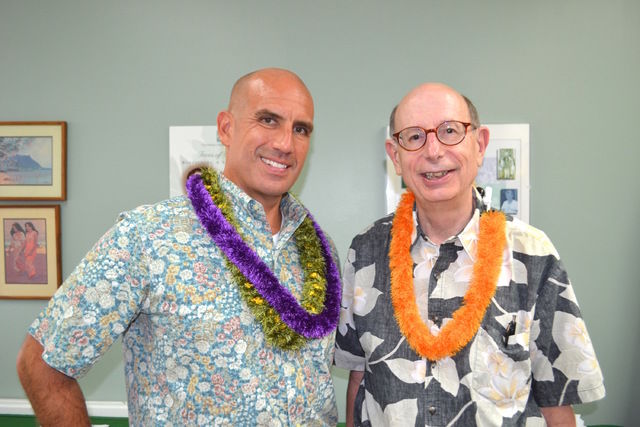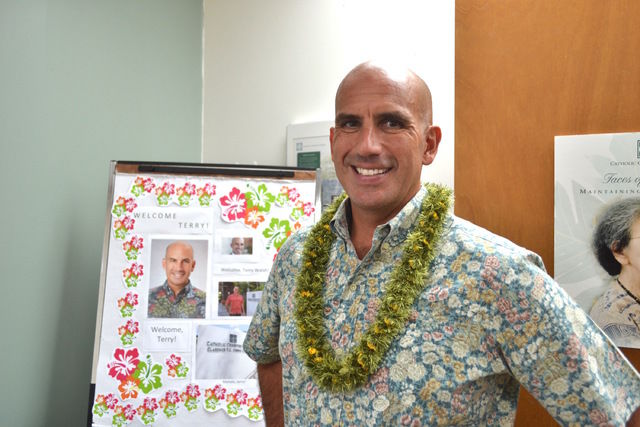LIHUE — Terry Walsh hopes to help alleviate several major issues for islanders. “The biggest challenges within the state and with Kauai are very similar: No. 1 is the issue of homelessness, the second biggest issue is senior care,” said
LIHUE — Terry Walsh hopes to help alleviate several major issues for islanders.
“The biggest challenges within the state and with Kauai are very similar: No. 1 is the issue of homelessness, the second biggest issue is senior care,” said Walsh, president and CEO of Catholic Charities Hawaii.
“The other issue that keeps coming up is the problem with the drug epidemic — specifically with ice — and it manifests itself in many different ways,” he continued. “I think that’s another area where I think we can grow our services and be more available.”
Walsh recently met with community members to discuss issues affecting the island.
“The Kauai office is small but mighty,” he said. “What we want to do is find ways to grow based on its needs.”
A graduate of Chaminade University of Honolulu, Walsh is succeeding long-time CEO, Jerry Rauckhorst.
Most recently, Walsh was with Catholic Charities West Michigan for three years.
“I’ve been working with Catholic Charities throughout the country for the last 20 years — working with a lot of refugees and immigrants and working in the field of serving the most vulnerable through different Catholic Charities agencies,” he said.
Kauai has seen a steady increase in the number of kupuna, aged 60 years and older, since 1980, according to the County of Kauai Agency on Elderly Affairs.
In 2013, those kupuna amounted to 17,180 or 24 percent of Kauai’s population. Three years before, the number of people 60 years and older was 14,723.
“With homelessness, there were many indications over time. We were going to end up with a crisis,” Rauckhorst said. “For whatever reasons, we chose other kinds of priorities. We ended up with a crisis.”
It’s the same with seniors, he said.
“We have all these seniors. We have all these caregivers. The caregivers are exhausted, stressed out. It’s on the horizon,” he said.
Walsh wants to be proactive with the senior care situation.
“With kupuna, we provide lots of social services where we have volunteers go into the home,” he said. “We have the seniors come out and engage in activities. We’ve shown in studies if seniors are involved, they’re less likely to have health problems because they have a network of support.”
Focusing on affordable housing, Walsh would like to emulate projects on Oahu.
“For example, in Kakaako Park we have the Family Assessment Center, which is a shelter that works with homeless families living on the street or on the beach, puts them in the shelter for up to three months and counsels them and works with them to get them into long-term, affordable housing,” he said.
Walsh said about 20 families have transitioned from the program to permanent housing.
The issue with drugs has come up more on Kauai than other islands Walsh has visited.
“(Drug addiction) is not only a disease that hurts the person — when there’s ice, there’s a fire, an explosion — there’s a ripple effect of affecting lots of other people,” he said. “It alienates the drug addict from their family. It’s not just an individual issue. It’s an issue that affects the whole community.”
With so many needs on Kauai, Rauckhorst said it will require a collaborative effort with the community to reach a solution.
“The more we can reach people with the outcomes we do and the differences that we make, it will help to solve the problem,” he said.



